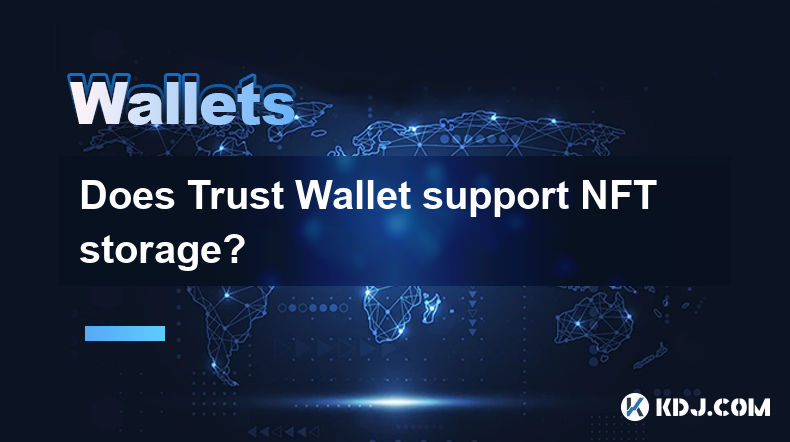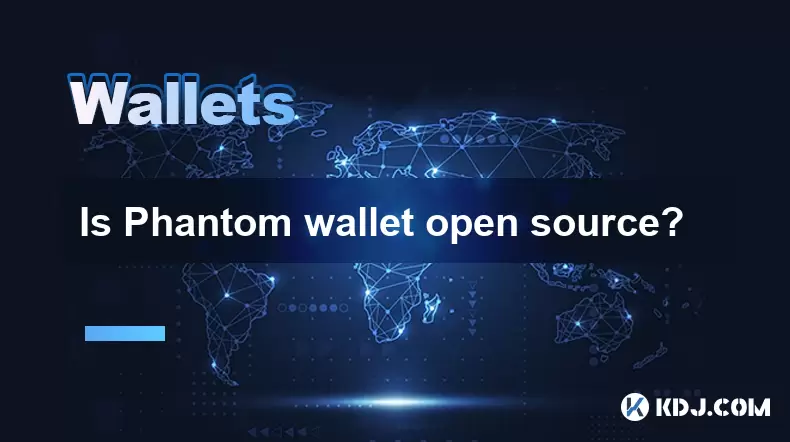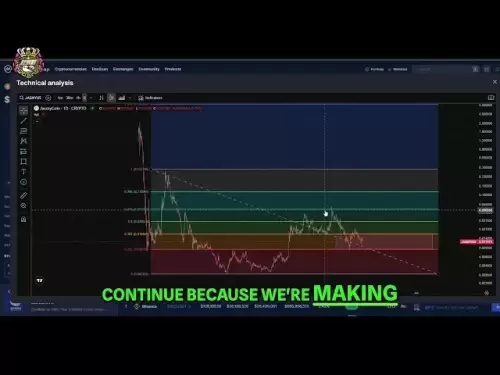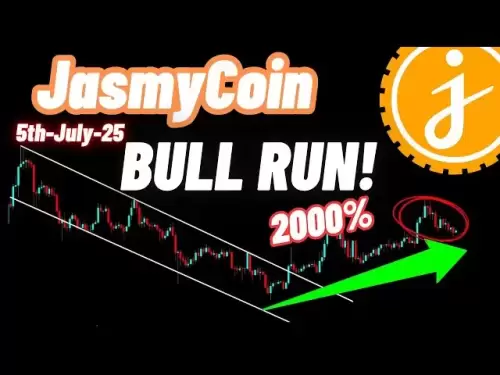-
 Bitcoin
Bitcoin $108,017.2353
-0.81% -
 Ethereum
Ethereum $2,512.4118
-1.58% -
 Tether USDt
Tether USDt $1.0002
-0.03% -
 XRP
XRP $2.2174
-1.03% -
 BNB
BNB $654.8304
-0.79% -
 Solana
Solana $147.9384
-1.76% -
 USDC
USDC $1.0000
-0.01% -
 TRON
TRON $0.2841
-0.76% -
 Dogecoin
Dogecoin $0.1636
-2.09% -
 Cardano
Cardano $0.5726
-1.72% -
 Hyperliquid
Hyperliquid $39.1934
1.09% -
 Sui
Sui $2.9091
-0.59% -
 Bitcoin Cash
Bitcoin Cash $482.1305
0.00% -
 Chainlink
Chainlink $13.1729
-1.54% -
 UNUS SED LEO
UNUS SED LEO $9.0243
-0.18% -
 Avalanche
Avalanche $17.8018
-1.90% -
 Stellar
Stellar $0.2363
-1.69% -
 Toncoin
Toncoin $2.7388
-3.03% -
 Shiba Inu
Shiba Inu $0.0...01141
-1.71% -
 Litecoin
Litecoin $86.3646
-1.98% -
 Hedera
Hedera $0.1546
-0.80% -
 Monero
Monero $311.8554
-1.96% -
 Dai
Dai $1.0000
-0.01% -
 Polkadot
Polkadot $3.3473
-2.69% -
 Ethena USDe
Ethena USDe $1.0001
-0.01% -
 Bitget Token
Bitget Token $4.3982
-1.56% -
 Uniswap
Uniswap $6.9541
-5.35% -
 Aave
Aave $271.7716
0.96% -
 Pepe
Pepe $0.0...09662
-1.44% -
 Pi
Pi $0.4609
-4.93%
Does Trust Wallet support NFT storage?
Trust Wallet supports NFT storage on Ethereum, Binance Smart Chain, and more, allowing users to manage and interact with their digital collectibles securely.
Apr 12, 2025 at 04:36 am

Introduction to Trust Wallet and NFTs
Trust Wallet is a popular mobile cryptocurrency wallet that supports a wide range of digital assets, including cryptocurrencies and tokens. One of the key features that many users are interested in is whether Trust Wallet supports the storage of Non-Fungible Tokens (NFTs). NFTs are unique digital assets that represent ownership or proof of authenticity of a specific item or piece of content, often used in digital art, collectibles, and gaming.
Understanding NFT Storage
Before delving into whether Trust Wallet supports NFT storage, it's important to understand what NFT storage entails. NFTs are typically stored on blockchain networks, such as Ethereum, where they are represented as smart contracts. These smart contracts contain metadata that describes the NFT, including its unique characteristics and ownership details. To store an NFT, a wallet must be able to interact with the blockchain and manage these smart contracts effectively.
Trust Wallet's Compatibility with NFTs
Trust Wallet does indeed support the storage of NFTs. The wallet is compatible with several blockchain networks that support NFTs, including Ethereum, Binance Smart Chain, and others. This compatibility allows users to securely store, manage, and interact with their NFTs directly from the Trust Wallet app. The wallet's interface is designed to be user-friendly, making it easy for users to view and manage their NFT collections.
How to Store NFTs in Trust Wallet
To store NFTs in Trust Wallet, follow these steps:
- Open the Trust Wallet app on your mobile device.
- Navigate to the "DApps" section within the app.
- Select a DApp browser that supports NFT marketplaces, such as OpenSea or Rarible.
- Connect your Trust Wallet to the chosen NFT marketplace by following the on-screen instructions.
- Browse the marketplace and select the NFT you wish to purchase or already own.
- Complete the transaction to buy the NFT or transfer an existing NFT to your Trust Wallet address.
- Once the transaction is confirmed, the NFT will appear in your Trust Wallet under the "Collectibles" section.
Viewing and Managing NFTs in Trust Wallet
After storing your NFTs in Trust Wallet, you can easily view and manage them. To view your NFTs, follow these steps:
- Open the Trust Wallet app.
- Tap on the "Collectibles" tab at the bottom of the screen.
- Scroll through your collection to see all the NFTs stored in your wallet.
To manage your NFTs, you can:
- Transfer NFTs to another wallet address by selecting the NFT, tapping on the "Send" button, and entering the recipient's address.
- Sell NFTs on supported marketplaces by connecting to the marketplace through the DApp browser and listing your NFT for sale.
Security Considerations for NFT Storage
When storing NFTs in Trust Wallet, it's crucial to consider security measures to protect your digital assets. Ensure that your device is secure by using strong passwords, enabling two-factor authentication, and keeping your software up to date. Additionally, never share your private keys or recovery phrases with anyone, as these are used to access your wallet and control your NFTs.
Interacting with NFT Marketplaces
Trust Wallet's integration with NFT marketplaces allows users to seamlessly buy, sell, and trade NFTs. To interact with an NFT marketplace, follow these steps:
- Open the Trust Wallet app and navigate to the "DApps" section.
- Select the NFT marketplace you wish to use, such as OpenSea or Rarible.
- Connect your Trust Wallet to the marketplace by following the on-screen instructions.
- Browse the available NFTs and select the one you want to purchase or list for sale.
- Complete the transaction according to the marketplace's instructions, ensuring that you have sufficient funds in your wallet to cover any fees.
Frequently Asked Questions
Q: Can I store NFTs from different blockchains in Trust Wallet?
A: Yes, Trust Wallet supports NFTs from multiple blockchains, including Ethereum and Binance Smart Chain, allowing you to store a diverse range of NFTs in one place.
Q: Are there any fees associated with storing NFTs in Trust Wallet?
A: Trust Wallet itself does not charge fees for storing NFTs. However, you may incur network fees when buying, selling, or transferring NFTs on the blockchain.
Q: Can I view the details of my NFTs within Trust Wallet?
A: Yes, Trust Wallet allows you to view detailed information about your NFTs, including their metadata and ownership history, directly within the app.
Q: Is it possible to recover my NFTs if I lose access to my Trust Wallet?
A: If you have your recovery phrase, you can restore your Trust Wallet and regain access to your NFTs. It's essential to keep your recovery phrase secure and never share it with anyone.
Disclaimer:info@kdj.com
The information provided is not trading advice. kdj.com does not assume any responsibility for any investments made based on the information provided in this article. Cryptocurrencies are highly volatile and it is highly recommended that you invest with caution after thorough research!
If you believe that the content used on this website infringes your copyright, please contact us immediately (info@kdj.com) and we will delete it promptly.
- Chainlink's Bullish Blueprint: Price Prediction and the Harmonic Pattern
- 2025-07-06 06:30:12
- Ruvi AI: The Audited Token Promising ROI That'll Make Your Head Spin
- 2025-07-06 06:30:12
- Ethereum Bull Run: Double the Potential in 2025?
- 2025-07-06 06:50:13
- Ruvi AI, Token, and Dogecoin: The Next Big Thing in Crypto?
- 2025-07-06 06:35:13
- Ethereum: Stability and Adoption Fueling Mainstream Finance
- 2025-07-06 07:10:12
- Meme Coins: Will They Jump Again? A New Yorker's Take on the Investment Craze
- 2025-07-06 06:50:13
Related knowledge

How to cancel a pending transaction in Phantom wallet?
Jul 03,2025 at 07:21pm
Understanding Pending Transactions in Phantom WalletA pending transaction in the Phantom wallet occurs when a user initiates a transfer or interaction with the Solana blockchain, but it hasn't yet been confirmed by the network. This can happen due to various reasons such as low transaction fees, network congestion, or incorrect gas settings. It's import...

How to see the estimated value of my tokens in Phantom wallet?
Jul 04,2025 at 12:21am
What is Phantom Wallet?Phantom wallet is one of the most popular cryptocurrency wallets designed for the Solana blockchain. It allows users to store, send, receive, and manage various tokens built on Solana, including SPL tokens and NFTs. The wallet offers a user-friendly interface, making it accessible for both beginners and advanced users in the crypt...

How to lock my Phantom wallet extension?
Jul 03,2025 at 11:14am
What Is the Phantom Wallet and Why Lock It?The Phantom wallet is a popular non-custodial cryptocurrency wallet designed for interacting with the Solana blockchain. Supporting both browser extensions and mobile apps, Phantom allows users to store, send, receive, and stake SOL tokens, as well as interact with decentralized applications (dApps). Securing y...

Does Phantom wallet offer two-factor authentication (2FA)?
Jul 03,2025 at 09:00am
Understanding Phantom Wallet and Its Security FeaturesPhantom wallet is a widely used non-custodial cryptocurrency wallet that supports the Solana blockchain. It allows users to store, send, receive, and interact with decentralized applications (dApps) seamlessly. As security is a top priority for any crypto wallet user, security features like two-facto...

What is "rent" on Solana and how does it affect my Phantom wallet?
Jul 02,2025 at 08:35pm
Understanding 'Rent' on SolanaIn the context of Solana, the term 'rent' refers to a storage fee that users pay for maintaining data on the blockchain. Unlike Ethereum, where storage costs are paid once via gas fees during contract deployment, Solana implements a recurring cost model to ensure efficient usage of network resources. This means that any acc...

Is Phantom wallet open source?
Jul 03,2025 at 12:29am
What is Phantom Wallet?Phantom wallet is a non-custodial cryptocurrency wallet primarily designed for the Solana blockchain. It allows users to store, send, receive, and interact with decentralized applications (dApps) on the Solana network. The wallet is available as a browser extension and mobile application, offering a seamless experience for both be...

How to cancel a pending transaction in Phantom wallet?
Jul 03,2025 at 07:21pm
Understanding Pending Transactions in Phantom WalletA pending transaction in the Phantom wallet occurs when a user initiates a transfer or interaction with the Solana blockchain, but it hasn't yet been confirmed by the network. This can happen due to various reasons such as low transaction fees, network congestion, or incorrect gas settings. It's import...

How to see the estimated value of my tokens in Phantom wallet?
Jul 04,2025 at 12:21am
What is Phantom Wallet?Phantom wallet is one of the most popular cryptocurrency wallets designed for the Solana blockchain. It allows users to store, send, receive, and manage various tokens built on Solana, including SPL tokens and NFTs. The wallet offers a user-friendly interface, making it accessible for both beginners and advanced users in the crypt...

How to lock my Phantom wallet extension?
Jul 03,2025 at 11:14am
What Is the Phantom Wallet and Why Lock It?The Phantom wallet is a popular non-custodial cryptocurrency wallet designed for interacting with the Solana blockchain. Supporting both browser extensions and mobile apps, Phantom allows users to store, send, receive, and stake SOL tokens, as well as interact with decentralized applications (dApps). Securing y...

Does Phantom wallet offer two-factor authentication (2FA)?
Jul 03,2025 at 09:00am
Understanding Phantom Wallet and Its Security FeaturesPhantom wallet is a widely used non-custodial cryptocurrency wallet that supports the Solana blockchain. It allows users to store, send, receive, and interact with decentralized applications (dApps) seamlessly. As security is a top priority for any crypto wallet user, security features like two-facto...

What is "rent" on Solana and how does it affect my Phantom wallet?
Jul 02,2025 at 08:35pm
Understanding 'Rent' on SolanaIn the context of Solana, the term 'rent' refers to a storage fee that users pay for maintaining data on the blockchain. Unlike Ethereum, where storage costs are paid once via gas fees during contract deployment, Solana implements a recurring cost model to ensure efficient usage of network resources. This means that any acc...

Is Phantom wallet open source?
Jul 03,2025 at 12:29am
What is Phantom Wallet?Phantom wallet is a non-custodial cryptocurrency wallet primarily designed for the Solana blockchain. It allows users to store, send, receive, and interact with decentralized applications (dApps) on the Solana network. The wallet is available as a browser extension and mobile application, offering a seamless experience for both be...
See all articles

























































































